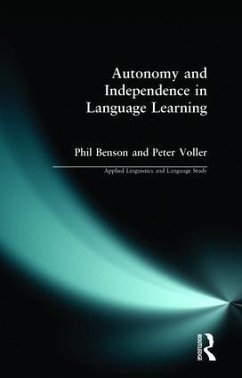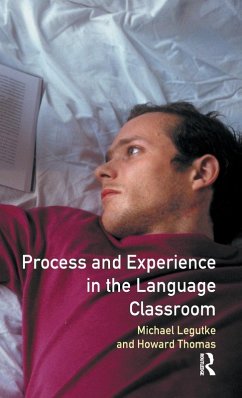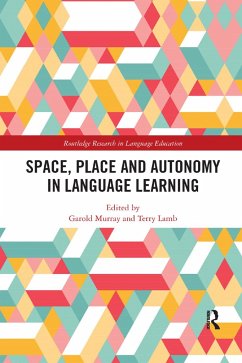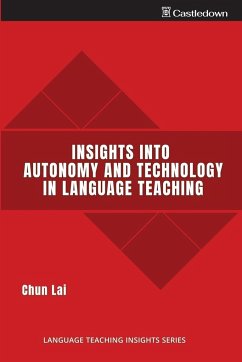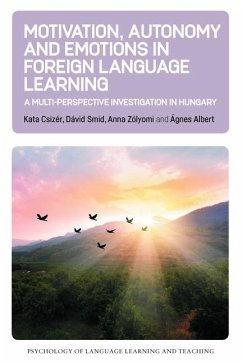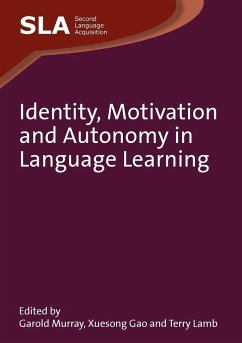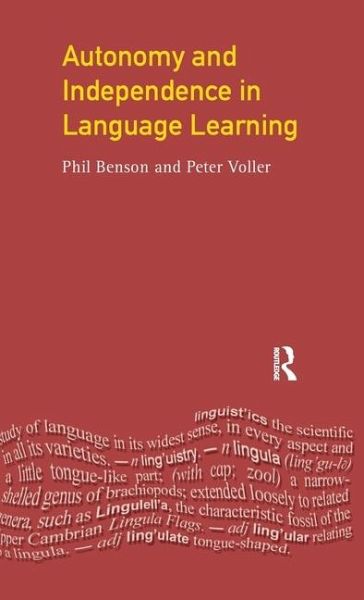
Autonomy and Independence in Language Learning
Versandkostenfrei!
Versandfertig in 1-2 Wochen
208,99 €
inkl. MwSt.
Weitere Ausgaben:

PAYBACK Punkte
104 °P sammeln!
This volume offers new insights into the principles of autonomy and independence and the practices associated with them focusing on the area of EFL teaching. The editors' introduction provides the context and outlines the main issues involved in autonomy and independence. Later chapters discuss the social and political implications of autonomy and independence and their effects on educational structures. The consequences for the design of learner-centred materials and methods is discussed, together with an exploration of the practical ways of implementing autonomy and independence in language ...
This volume offers new insights into the principles of autonomy and independence and the practices associated with them focusing on the area of EFL teaching. The editors' introduction provides the context and outlines the main issues involved in autonomy and independence. Later chapters discuss the social and political implications of autonomy and independence and their effects on educational structures. The consequences for the design of learner-centred materials and methods is discussed, together with an exploration of the practical ways of implementing autonomy and independence in language teaching and learning .





